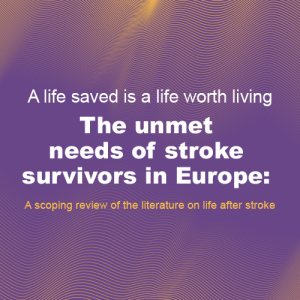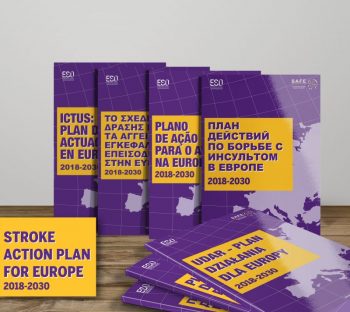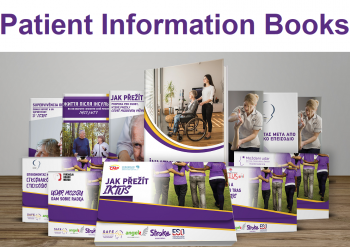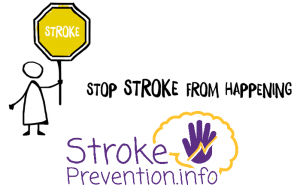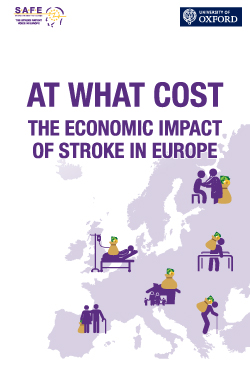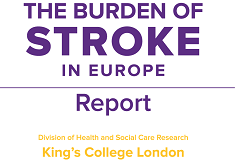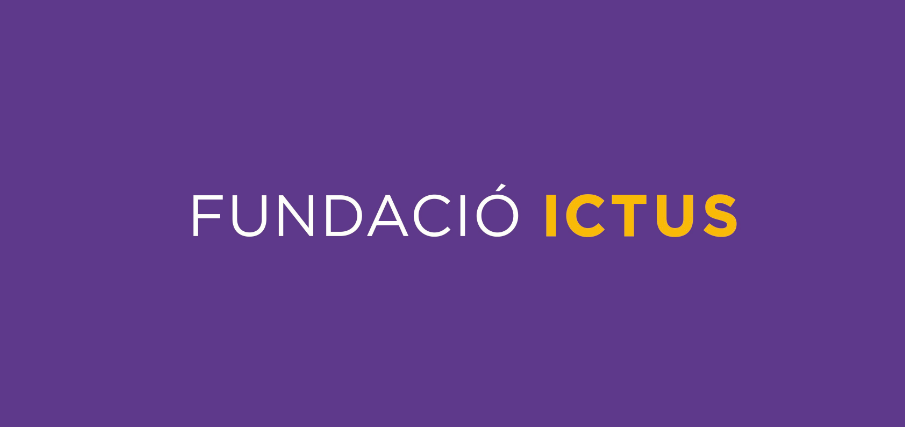
Jul 5, 2019
“The life after stroke is the poorest point of the care process, especially in the chronic phase” says Esther Duarte, member of the board of Fundació Ictus, and rehabilitation doctor at IMIM Institut Hospital del Mar d’Investigacions Mèdiques in Catalonia, Spain.
SAFE: What is one issue related to the life after stroke in your country or region that you think needs special attention?
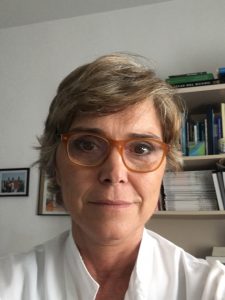
Esther Duarte
ED: In Catalonia, stroke patient associations have few members, therefore they have little power in society and official institutions, as well. In consequence, more public resources are always allocated to young patients with other illnesses, such as cancer and ischemic cardiovascular pathology. Moreover, these associations are only useful for a small percentage of patients. One of the aspects that are not taken into account is labor protection. Few patients return to work because there are no policies to facilitate it. Furthermore, other aspects with bad attention are those related to sexuality or driving, for example. On the other hand, there are few research groups focused on life after stroke and how improve patient-centered outcomes. In conclusion, access to rehabilitation services is not guaranteed in all cases and the needs of patients and caregivers are not always met.
SAFE: What would be the solution, i.e. what is your organization’s position regarding this issue?
ED: The main goal of Fundació Ictus is to improve the quality of life of stroke survivors and their caregivers. We collaborate with patient associations to meet their needs and help them in finding resources for their activities. We also help stroke survivors with specific training for caregivers and volunteers. That’s an important point, because there is not any specific course focused on stroke addressed to any professional, except the hospital nursery course that we have organized for 11 years. We also encourage patient-centered research, otherwise there is no way to advance in giving a better care to stroke survivors. Moreover, we offer advice in different dimensions: legal, labor, social, driving and sexual. Finally, we are trying to develop new platforms oriented to patients and caregivers that integrate all the information.
SAFE: Please tell us more about your organization.
ED: Fundació Ictus is an entity with a social presence with the mission of publicizing the disease, promoting research on it and supporting people who have suffered a stroke. Our main goals are popularizing the disease and spread how to prevent it, how to avoid it and how to treat it. Furthermore, we support stroke patients, offering support to people with disabilities, with alliances with other entities. In addition, we promote research on the disease in all its stages and from all perspectives.
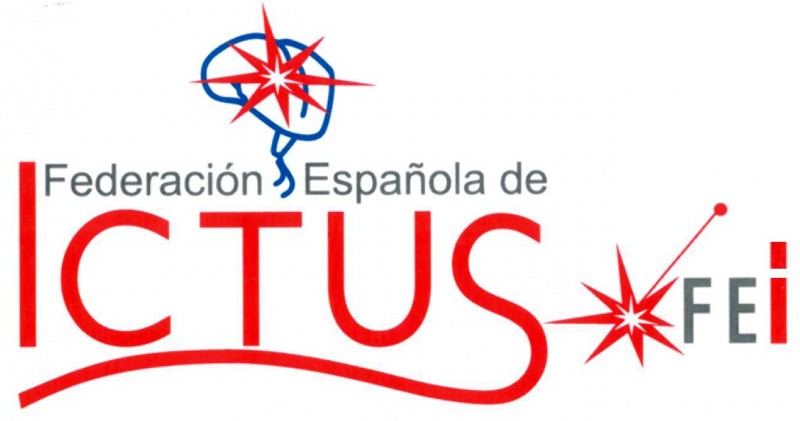
Jul 4, 2019
“Our system promotes health, prevents disease and provides assistance to serious patients in an exemplary manner, trains its professionals properly and generates a high added value in biomedical research, but it still has one remaining issue: to rehabilitate, take care of both the patient and the caregiver and properly reinsert citizens back into society” says Carmen Aleix, the President of the Spanish Federation of Stroke (FEI).
SAFE: What is one issue related to the life after stroke in your country that you think needs special attention?

Carmen Aleix
CA: Rehabilitation in patients with stroke occupies a very irrelevant role in most health decision-making forums throughout Spain, including Catalonia.
We know what our patients think about how the service is provided “beyond the acute phase” They notice limitations regarding care access related to age and perceive that there are no homogeneous referral criteria when accessing to certain social benefits. They also sense lack of information and greater difficulties regarding access to attention when there is cognitive damage associated with severe behavioral disorders. Patients also report important differences in the quality of the benefit depending on the center to which the patient is referred. Rehabilitation should be the main actor and not the secondary or even the absent one, as has been up to now in any plan or strategy on stroke or any other disease that produces disability. Patients demand to live with dignity.
SAFE: What would be the solution, i.e. what is your organisation’s position regarding this issue?
CA: The Spanish Stroke Federation defends the need to carry out in-depth reforms of the system to ensure its sustainability. Encourage patient self-care, health promotion, adjustment of resources to needs and continuity in care.
Our current health model needs to adapt to the new social reality marked by population aging which has become chronic, and the continuous development of technological services. For this, it considers that the person must be placed in the center of our National Health System (SNS), in order to achieve that the needs of the patient to be the ones that vertebrate all the infrastructures and sanitary and sociosanitary services, and demanding a much more active participation in the design and execution of the services that are provided, which is already happening in the most advanced countries in terms of health. Ideally, we should be able to count on a NATIONAL NETWORK OF CONTINUED CARE and to know clearly how the rehabilitation expense is managed in the Social Security and why now is there so much deficiency, so few sessions and so terrible attention in the rehabilitation of stroke patients.
SAFE: Please tell us more about your organisation.
CA: The Spanish Federation of Stroke (FEI) is a non-profit organization at the national level, independent of the administrations, of volunteering, which was founded in 2006. The lack of interest and the scarce sensitization of the health administrations towards stroke was a sufficient reason for the constitution of the federation. The mission of the FEI is to promote information and education on stroke, prevention and adequate and equitable treatment throughout the national territory. Its values are Participation, Commitment, Responsibility, Social Change.
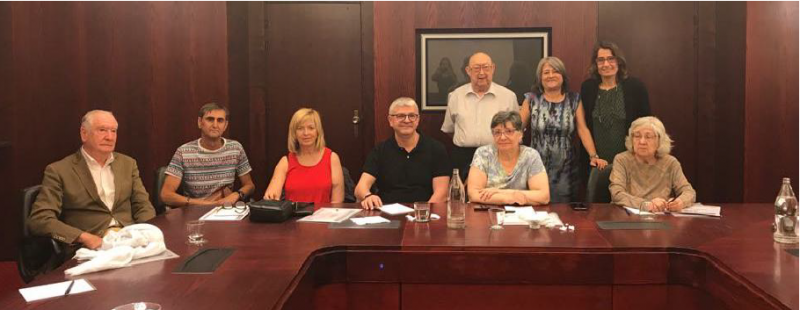
2018 Assembly of the Federation with its associations
Commitment for 2019
1. The FEI is participating in the prevention campaign #GeneraciónInvictus.
2. It is also conducting online surveys to participate patients and caregivers.
3. We have signed a collaboration agreement with the Spanish Society of General and Family Physicians, through which an epidemiological study on the knowledge of stroke in primary care will be carried out jointly, as well as the organization of other workshops and joint activities.
A picture is worth a thousand words, to know our activities we leave our WEBs and Social Networks.
https://ictusfederacion.es/
https://www.facebook.com/ictusfederacion/
https://twitter.com/ictusfederacion
http://diamundialdelictus.org/unictusunahistoria.com/
.
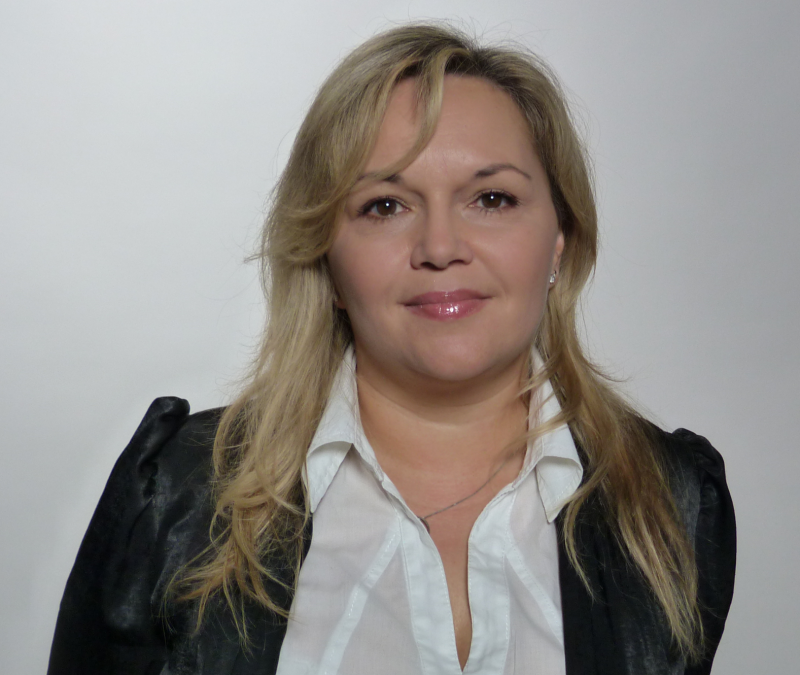
Jun 28, 2019
“Due to deficiency of post-stroke services, stroke survivors leave for psychiatric hospitals or institutions for mentally handicapped people. The support or assistance provided is very low, and there is a complete exhaustion and often the disintegration of these families. At present there are very limited possibilities of specialized and comprehensive rehabilitation in the Czech Republic. Cerebrum responds to this situation and seeks to create a system of aftercare in the scope and volume as allowed by current grants and funds” says Jana Dobrkovská, the CEO of CEREBRUM – Sdružení osob se získaným poškozením mozku a jejich rodin, Czech organisation that is member of SAFE.
SAFE: What is one issue related to the life after stroke in your country that you think needs special attention?
JD: In the Czech Republic we have an excellent system of acute care for stroke. Our stroke centers are high-end facilities that provide the best acute stroke assistance. However Czech health insurance system is limited by volume of support for people after stroke in non acute phase. When the paid physical treatment ends, the survivors no longer continue in any rehabilitation cover by insurance action, although their physical condition would allow them to do so. Also our current system of long-term care for this target group of people is a disjointed with lack of continuity and interconnection of services for the patient after acquired brain injury. Due to deficiency of services, these people leave for psychiatric hospitals or institutions for mentally handicapped people. However, these types of devices are neither identified nor able to provide adequate assistance. If the family decides to take care of themselves, the support or assistance provided is very low, and there is a complete exhaustion and often the disintegration of these families.
SAFE: What would be the solution, i.e. what is your organisation’s position regarding this issue?
JD: We currently help clients who need help from psychologist, speech therapist, physiotherapist. The arrangement of assistance is non-acute care in the form of individual and group therapies. We provide advice in this area and map services that are intended for people after this injury. We also perform our own therapeutic activities and occupation therapy in the home environment. Our team is a psychologist, an occupational therapist, a speech therapist. Our clients are people after a stroke (stroke), injuries (accidents, sports falls and the like) or with consequences after treatment of malignant diseases. We also try to provide help and advice to the clinic’s family, carers and relatives This year we launched a project in selected hospitals in Prague, where, we provide support for families of patients who leave for home care. Our coordinator provides advice and support in everything that home returns often represents; where to buy compensation aids, how to ergonomically adjust housing, where to go for help in the social sphere and more. Another priority of the project is relief and mental support for carers.The aftercare segment has been waiting for the adoption of the Rehabilitation Act for many years to unify post-stroke aftercare procedures. Our activity is also to draw attention to this situation and to influence the general and professional public and raise the awareness o about the wide range of consequences of brain injury and the possibilities of rehabilitation.
SAFE: Please tell us more about your organisation.
 JD: We currently help clients who need help from psychologist, speech therapist, physiotherapist. The arrangement of assistance is non-acute care in the form of individual and group therapies. The main objective is to raise the awareness of the Czech public about the wide range of consequences of brain injury and the possibilities of rehabilitation. We provide advice in this area and map services that are intended for people after this injury. We also perform our own therapeutic activities and ergotherapy in the home environment. Our team is a psychologist, an occupational therapist, a speech therapist, physiotherapist. Our clients are people after a stroke (stroke), injuries (accidents, sports falls and the like) or with consequences after treatment of malignant diseases. We also try to provide help and advice to the clinic’s family, carers and relatives.
JD: We currently help clients who need help from psychologist, speech therapist, physiotherapist. The arrangement of assistance is non-acute care in the form of individual and group therapies. The main objective is to raise the awareness of the Czech public about the wide range of consequences of brain injury and the possibilities of rehabilitation. We provide advice in this area and map services that are intended for people after this injury. We also perform our own therapeutic activities and ergotherapy in the home environment. Our team is a psychologist, an occupational therapist, a speech therapist, physiotherapist. Our clients are people after a stroke (stroke), injuries (accidents, sports falls and the like) or with consequences after treatment of malignant diseases. We also try to provide help and advice to the clinic’s family, carers and relatives.
Size of our organisation is 16 employees,with a 45.000 EUR turnover in 2017.
Brief description of Stroke situation in Czech Republic
Statistic
Hospitalized and deceased for cerebral vascular disease in the Czech Republic (2003-2010)
The number of hospitalizations for cerebral vascular disease from 64,399 cases in 2003 to 57,484 of cases in 2010 decrease by 10.7%
In stroke hospitalizations between 2003 and 2010 there has been a decrease by 7.8% from 44,585 to 41,111 cases (after conversion to 100,000 inhabitants, the trend is also falling Looking at the cerebral vascular disease group in detail, there has been a steep decline in the number of hospitalizations for unspecified patients stroke from 21 037 cases (in 2003) to 10 762 (in 2010), i.e. by half.
In contrast, ischemic attack was diagnosed in 23,871 cases in 2010 compared to 18,055 cases in 2003, ie an increase of about 32%.
Despite the modest increase in other cerebral vascular diseases types, there is an overall gradual decline in all cases. However, the treatment period is lower for stroke (14.1 days in 2003 at 13.6 days in 2010). The average age of hospitalized patients in 2010 ranges from 66.2 to 76.6 years. Compared to 2003, the average age of all cerebral vascular diagnoses was moderate hospitalized in accordance with the increasing demographic aging of the population mortality rates 11.1 deaths per 100 hospitalizations in 2010 compared to 14.5 deaths in 2003 A total of 11,567 people died in the Czech Republic for cerebral vascular disease in 2010, which represents 10.8% of all deaths in a given year. Compared to 2003, this is a decrease of 31%.
Social situation of people who suffer from stroke and other cerebral vascular diseases
The awareness of the importance of health-enhancing physical activity among stroke patients in Czech country is very low. To keep effective social inclusion, the information campaign and knowledge training about such disabilities is crucial. This social inclusion is very poor in Czech Republic. To set up participation in social and public activity for cerebral disease survivors including stroke patients, is very important. This activity needs to be arranged not only for wide population , but it is more important to present the importance of such activities to the survivors themselves.
Cerebrum has experience with clients who show good progress in physiotherapy, but do not have the courage to resume normal social daily activities like they did before stroke. These people also have no calls from public events to join. On the other hand event providers do not offer services with conditions to participate these people in their limitations. And likewise here are very good activities for disabled people in the Czech Republic, which, however, do not often involve people without disabilities.
We want to increase the knowledge of the public in Czech republic and create the link between usual daily living and brain damage survivors. Cerebrum´s employees and association partners are professional therapists, who understand physical limitation of stroke survivors and therefore can act as a mentor for such methodology and trainers education.
Czech health insurance system is also limited by volume of support for people after stroke. When the paid physical treatment ends, the survivors no longer continue in any rehabilitation cover by insurance action, although their physical condition would allow them to do so. We see an opportunity in this area too.
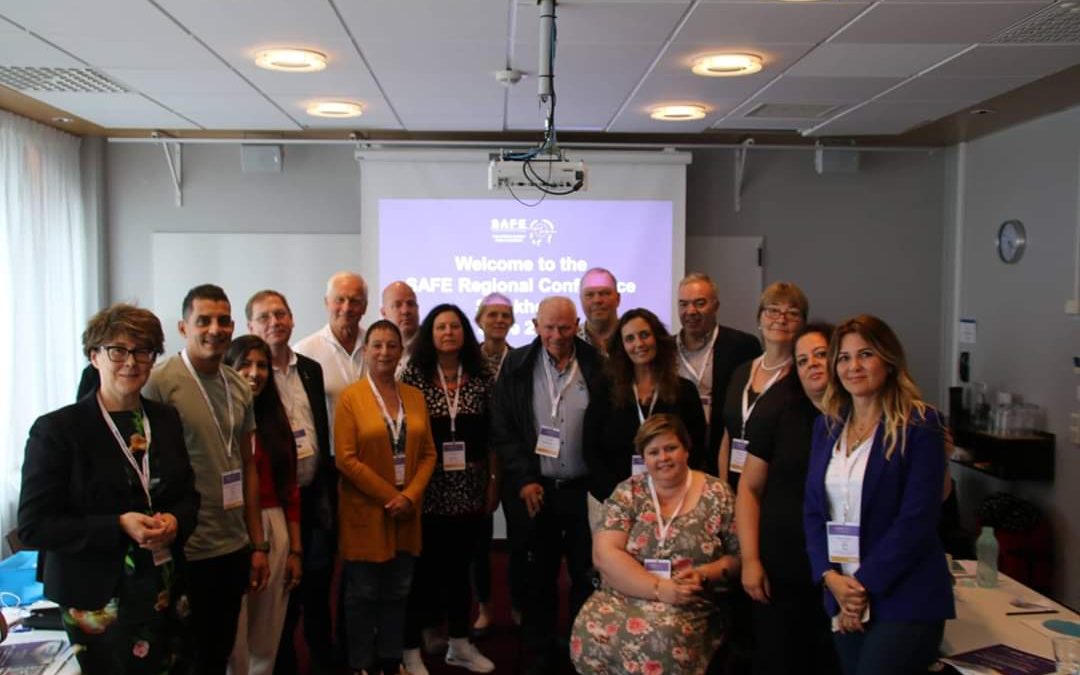
Jun 27, 2019
SAFE member organisations from North and South European clusters gathered on 26th June in Stockholm, Sweden to discuss the following items:
- A review of SAFE’s work, including the updating of its strategy and a discussion of its relationship with, and activities addressing the importance of co-morbidities
- Discussion of the implementation of the Stroke Action Plan for Europe, focusing particularly on work that can be done in each country and stakeholder engagement and partnership in advocacy
- An update on the Romanian Presidency event

- Translations of materials and promotion of the prevention website
- Utilisation of the SSOFT website to enable growth of SSOs and more effective advocacy
- Preliminary findings and messages arising from the Economic Impact of Stroke research
- SAFE Research Projects
- SAFE and World Stroke Day 2019
- MERZ Spasticity project
- Round-up of activity from attending members
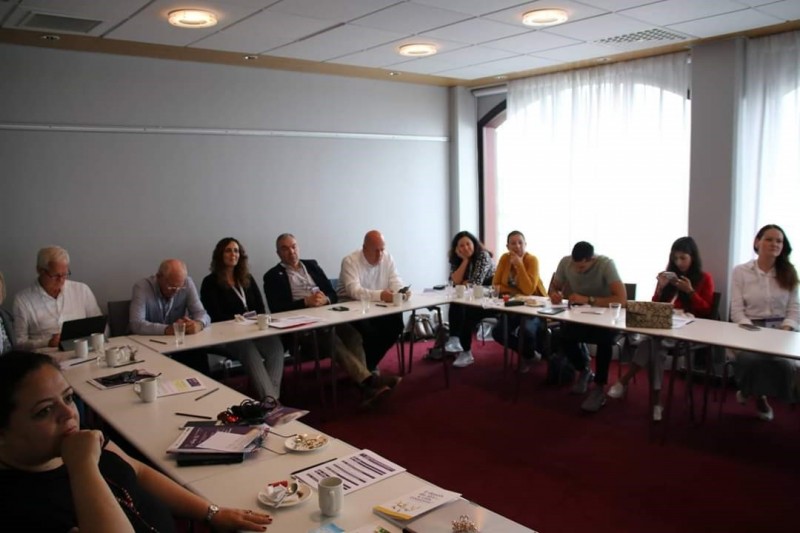
SAFE is thankful to Boehringer Ingelheim for the continued sponsorship of our Regional Conferences.
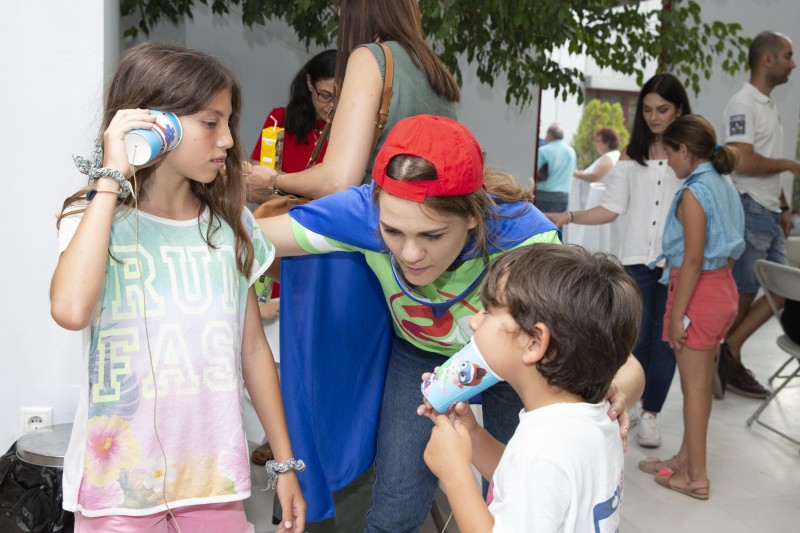
Jun 27, 2019
FAST HEROES 112 is a stroke intervention that does not only educate children and their extended families to recognize stroke symptoms but also aims to enhance the relationship between children and their grandparents (or Grandheroes as we call them). To date, three schools have taken part in the program in Thessaloniki, Greece with encouraging results. During the first stage of the piloting phase, kindergarteners participated in a wide range of activities over a period of 5 weeks revolving around four superheroes. These activities taught them to recognize some of the main stroke symptoms and appreciate the importance of calling an ambulance on 112 if stroke is suspected. Results from our first systematic study revealed successful outcomes and gave rise to additional interventions in two more schools.
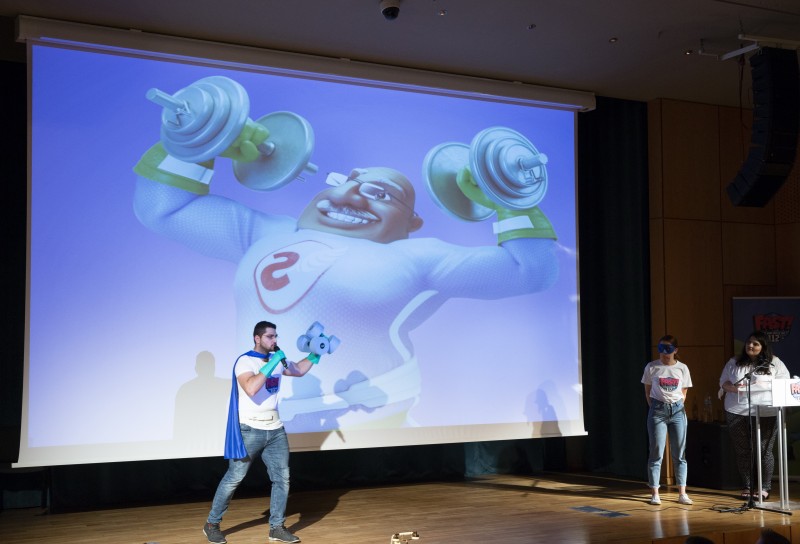
Around 200 people; all children and family members from the 3 participating schools, met on Thursday 20 June for Grand Hero Day celebration. The event, organized by Panorama Town Hall in Thessaloniki, Greece hosted a series of activities, continuing to educate children and families but also disseminating the aims and outputs of the program to the public. Parents from the three schools gave a very enthusiastic response to Grand Hero Day and additional interest was expressed by other schools in Greece for participating in the program in the next academic year.

FAST HEROES 112 is next travelling to Bulgaria! On Friday 21 June, FAST HEROES 112 team members and two participants from Bulgaria had the opportunity to discuss the content and structure of the existing program, its aims and objectives, as well as its current and future feasibility. Our team drew our new collaborators’ attention to effective strategies to be adopted and pitfalls to be avoided.
As public involvement is growing and more active international collaboration is being fostered, FAST Heroes 112 under the guidance of the University of Macedonia and with support from the Angels Initiative is hoping to inspire others to empower young heroes and unleash their potential to save their own heroes.

Photo credits: Angels Initiative
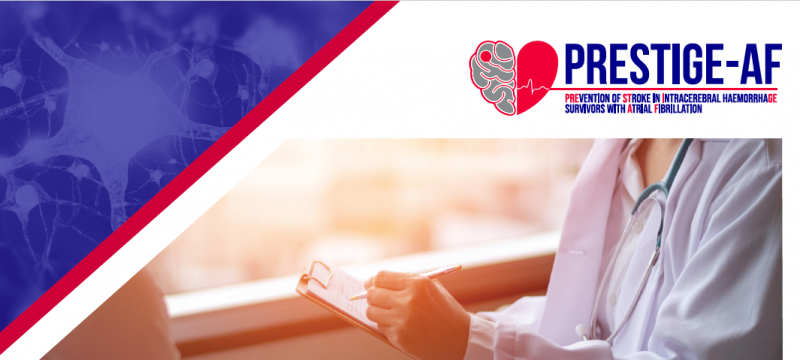
Jun 25, 2019
PRESTIGE AF is a €6.9m project, aimed at patients with atrial fibrillation (AF), a common heart condition which causes irregular and abnormally fast heartbeat, who have previously had a stroke caused by bleeding in the brain (termed intracerebral haemorrhage or ICH). The Prevention of Stroke in intracerebral hemorrhage survivor with Atrial Fibrillation (PRESTIGE-AF) brings together scientists and clinicians across Europe with the goal of reducing the risk of further stroke in this group of patients.
At the core of the PRESTIGE-AF project is a clinical trial to gather evidence around recommended medication for stroke prevention in patients with AF. Several sub-studies will explore individual predictive risk modelling using brain imaging, genetic testing and other biological markers. Other aspects of the project include exploring cognitive and psychological factors and drug adherence by patients.
Congratulations to the team at Imperial College Healthcare NHS Trust (UK) who randomised the first participant into the PRESTIGE-AF Study, while other sites across Europe are underway to do the same.

The team at Imperial College Healthcare NHS Trust who randomised the first participant. From left: Vaishali Dave, Peter Wilding, Ana Gil, Sheila Mashate (front-right). Congratulations to the team!
The Stroke Alliance for Europe (SAFE) has responsibility in the project for disseminating information about TENSION to the stroke community. For more information, please contact research@safestroke.eu.
PRESTIGE-AF has received funding from the European Union’s Horizon 2020 research and innovation programme under grant agreement No 754517.







 JD: We currently help clients who need help from psychologist, speech therapist, physiotherapist. The arrangement of assistance is non-acute care in the form of individual and group therapies. The main objective is to raise the awareness of the Czech public about the wide range of consequences of brain injury and the possibilities of rehabilitation. We provide advice in this area and map services that are intended for people after this injury. We also perform our own therapeutic activities and ergotherapy in the home environment. Our team is a psychologist, an occupational therapist, a speech therapist, physiotherapist. Our clients are people after a stroke (stroke), injuries (accidents, sports falls and the like) or with consequences after treatment of malignant diseases. We also try to provide help and advice to the clinic’s family, carers and relatives.
JD: We currently help clients who need help from psychologist, speech therapist, physiotherapist. The arrangement of assistance is non-acute care in the form of individual and group therapies. The main objective is to raise the awareness of the Czech public about the wide range of consequences of brain injury and the possibilities of rehabilitation. We provide advice in this area and map services that are intended for people after this injury. We also perform our own therapeutic activities and ergotherapy in the home environment. Our team is a psychologist, an occupational therapist, a speech therapist, physiotherapist. Our clients are people after a stroke (stroke), injuries (accidents, sports falls and the like) or with consequences after treatment of malignant diseases. We also try to provide help and advice to the clinic’s family, carers and relatives.








